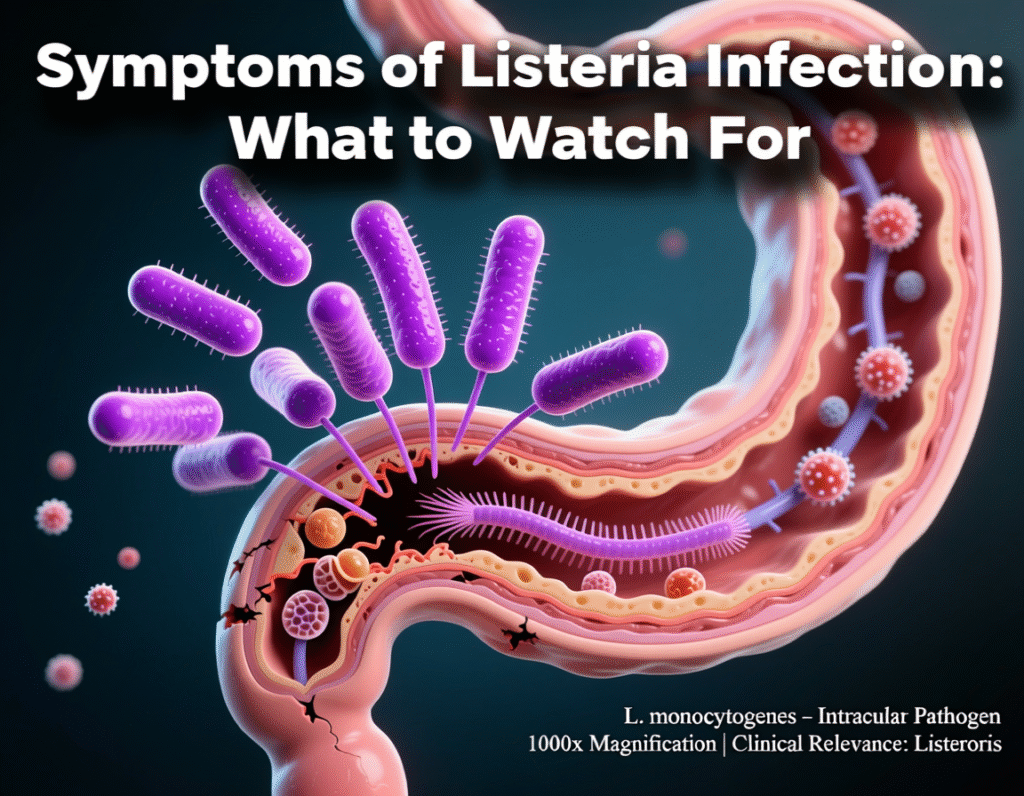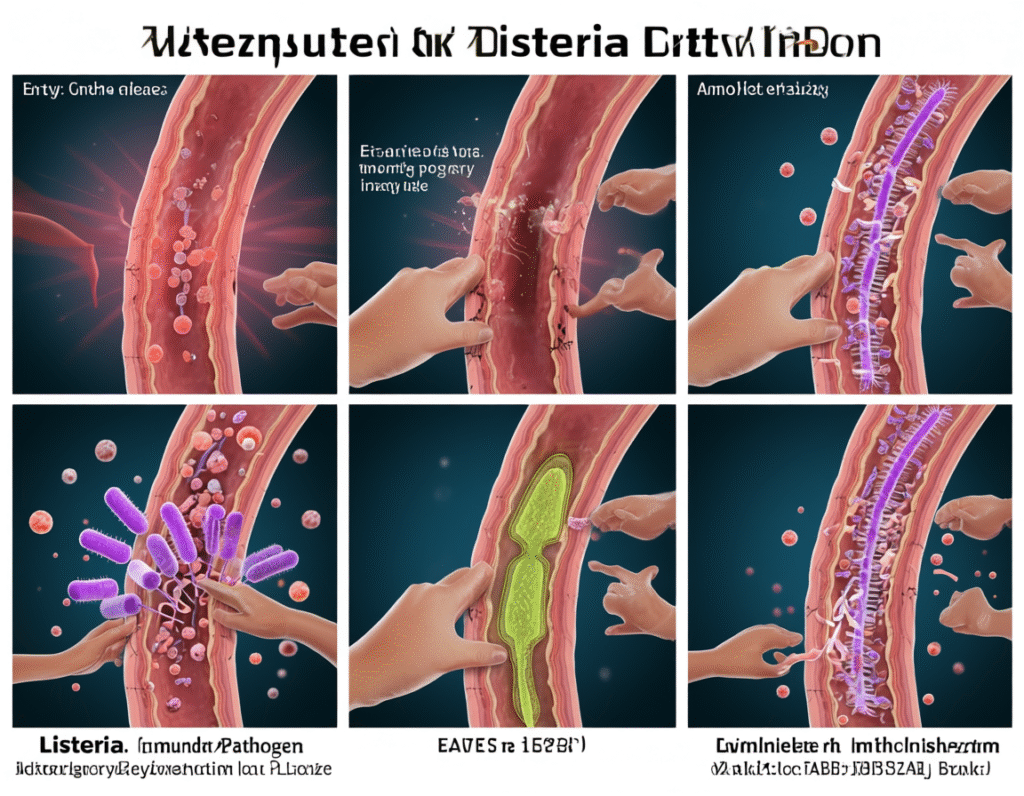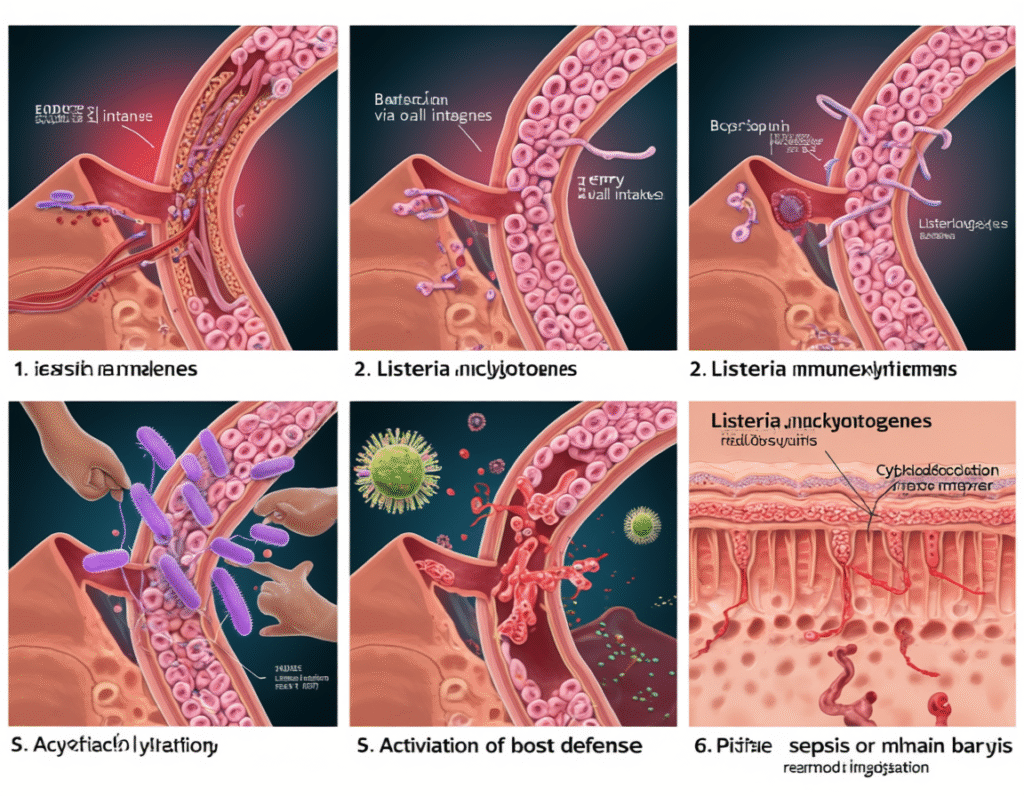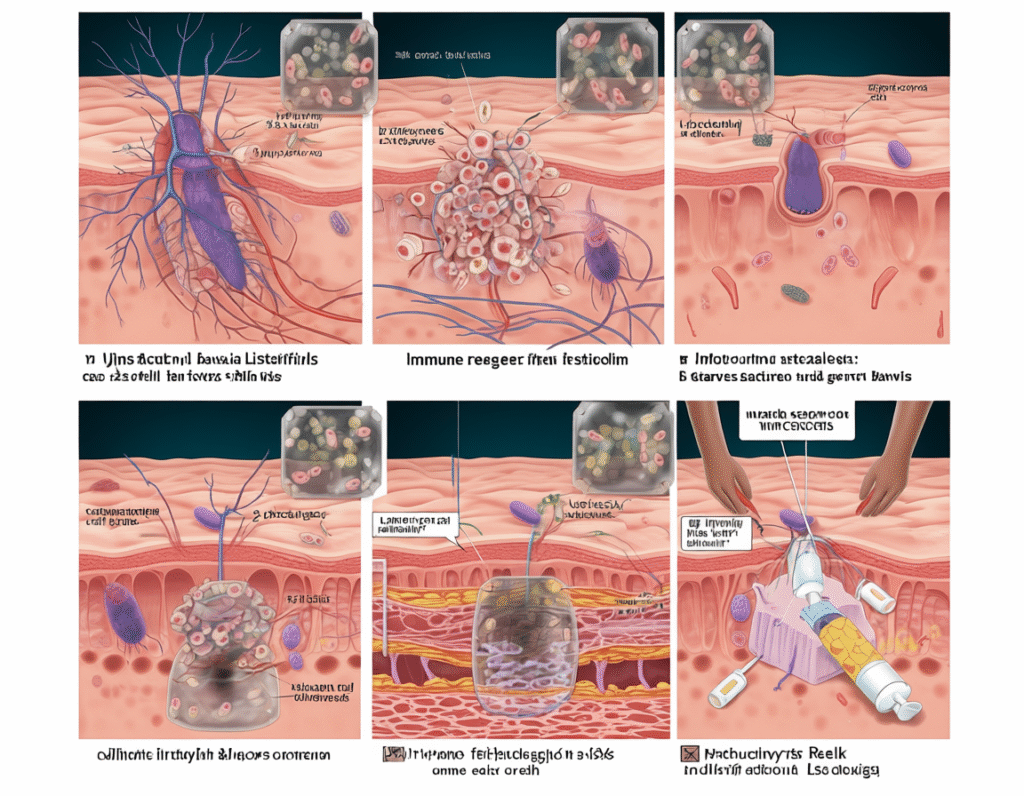Everything You Need to Know About Listeria: Symptoms, Risks, and Prevention

You’ve probably heard about listeria in the news—often linked to food recalls or warnings for pregnant women. But what exactly is listeria, and why should you care? In this comprehensive guide, I’ll walk you through everything you need to know about listeria, including symptoms of listeria monocytogenes, treatment options, risks associated with certain foods, especially deli meats in pregnancy, and strategies to keep you safe.
What Is Listeria? Understanding the Basics
Listeria refers to a type of bacteria called Listeria monocytogenes. This bacteria causes a serious infection called listeriosis, which can affect anyone but is especially dangerous for pregnant women, newborns, older adults, and people with weakened immune systems.
What makes listeria particularly tricky is that it can survive and even grow at refrigerator temperatures, which is unusual for bacteria that cause food poisoning.
“In my experience, many people don’t realize that listeria can hide in ordinary foods like deli meats or soft cheeses,” says a food safety expert.
Symptoms of Listeria Infection: What to Watch For

Recognizing bacteria listeria symptoms early is crucial. Symptoms of listeriosis monocytogenes often resemble the flu but can escalate quickly. Common signs include:
- Fever
- Muscle aches
- Nausea or diarrhea
- Headache
- Stiff neck
- Confusion or loss of balance (in severe cases)
Here’s a quick comparison table of how listeria symptoms can differ from other foodborne illnesses:
| Symptom | Listeria Infection | Common Food Poisoning (Salmonella/E.coli) |
|---|---|---|
| Onset Time | Several days to weeks | Within hours to 1-2 days |
| Fever | Common and often high | Rare or low-grade |
| Muscle Pain | Frequent | Rare |
| Meningitis Risk | Possible in severe cases | Uncommon |
“For me, what I learned the hard way is that listeria symptoms can be subtle at first but can lead to serious complications if ignored,” shares a patient who survived listeriosis.
How Do People Get Listeria? Major Sources to Know

Listeria monocytogenes is mostly transmitted through contaminated food. Some typical sources include:
- Ready-to-eat deli meats and luncheon meats
- Soft cheeses like Brie and Camembert
- Unpasteurized milk and dairy products
- Raw sprouts and smoked seafood
- Frozen waffle recall incidents have also been linked to listeria outbreaks in rare cases.
Remember, frozen or refrigerated doesn’t guarantee safety with listeria, unlike other foodborne bacteria.
Listeria and Pregnancy: What Every Mom-to-Be Should Know

Pregnant women are among the highest-risk groups for listeriosis. Infection during pregnancy can lead to miscarriage, stillbirth, premature delivery, or life-threatening infections in newborns.
Here’s a table of safe vs. risky foods for pregnant women regarding listeria:
| Safe Foods | Foods to Avoid During Pregnancy |
|---|---|
| Pasteurized milk and cheese | Deli meats and luncheon meats (unless heated) |
| Cooked seafood | Unpasteurized cheeses |
| Fresh fruits and vegetables | Raw sprouts |
| Well-cooked meats | Cold smoked seafood |
What I always tell expecting mothers is to avoid deli meats unless they are thoroughly heated. This simple step can drastically reduce the risk of listeria monocytogenes infection.
Diagnosing and Treating Listeria Infection
Diagnosis usually involves blood tests or spinal fluid analysis, especially if symptoms suggest meningitis or septicemia. Early treatment is key.
Treatment of listeria bacteria infections typically involves antibiotic therapy such as ampicillin or gentamicin.
Here are five actionable tips to protect yourself:
- Always reheat deli meats and luncheon meats until steaming hot.
- Avoid unpasteurized dairy products and soft cheeses.
- Wash raw vegetables thoroughly and separate them from raw meat in your kitchen.
- Keep your refrigerator at or below 40°F (4°C) and regularly clean it.
- Stay informed about food recalls related to listeria, such as frozen waffle recalls or deli meat recalls.
Understanding Listeria Recalls and Outbreaks

You may have heard news about listeria meat recalls or frozen waffle recall alerts. These recalls happen because listeria has been detected in food products that could pose a risk. If a food product is recalled, do not consume it and dispose of it safely.
Listeria outbreaks have led to significant public health concerns. Keeping up with reputable food safety news sources helps you avoid exposure.
Personal Insights: What Listeria Taught Me

“Here’s a tip I always give beginners worried about food safety: trust your sense of smell and freshness, but don’t rely on them alone. Listeria can grow without changing the taste or smell of food.”
Taking food safety seriously doesn’t mean living in fear, but being vigilant, especially if you belong to a risk group.
Frequently Asked Questions (FAQs)
Q1: Can healthy people get listeriosis?
Yes, but it’s rare. Healthy individuals usually experience mild symptoms or none at all.
Q2: How long after eating contaminated food do symptoms appear?
Symptoms can take from 1 day up to 4 weeks to show, sometimes longer.
Q3: Is listeria killed by cooking?
Yes, cooking food to the right temperature kills listeria bacteria.
Q4: Can listeria be transmitted from person to person?
Listeria is rarely transmitted this way; it mostly spreads through contaminated food.
Q5: Which foods are the most common causes of listeria infections?
Deli meats, soft cheeses, unpasteurized dairy, and sometimes smoked seafood.
Summary and Key Takeaways
Listeria monocytogenes is a stealthy bacteria that can cause serious illness, especially if you are pregnant or have a weakened immune system. Recognizing symptoms of listeria monocytogenes early and knowing high-risk foods can protect you and your loved ones. Always practice good food hygiene, stay updated on recalls, and don’t overlook the importance of heating deli meats.
If you want peace of mind, taking small safety steps can go a long way in avoiding listeriosis monocytogenes infection. Remember, food safety is not just about avoiding illness but about caring for your health every day.

